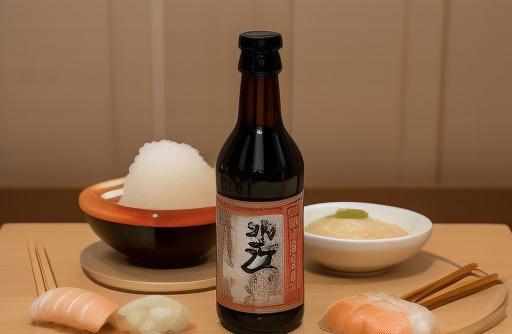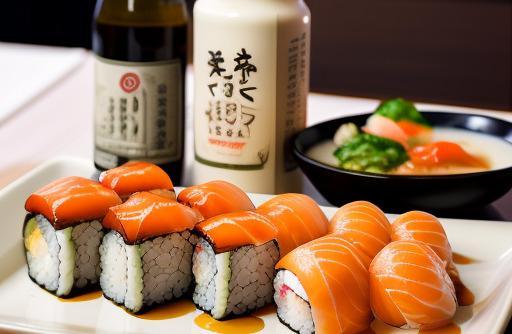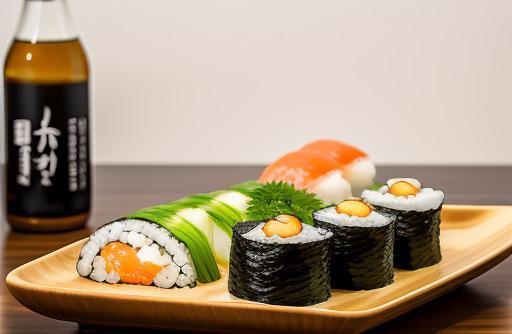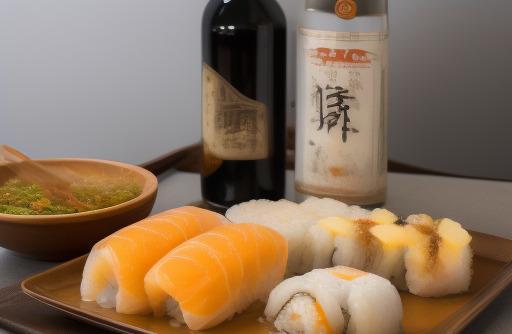- You are here:
- Home »
- Food Substitutes
- » Best Substitutes For Rice Vinegar
Best Substitutes For Rice Vinegar

Rice vinegar is a staple ingredient in many Asian cuisines, known for its mild acidity and delicate flavor. It is commonly used in dishes like sushi rice, salad dressings, pickles, and marinades. However, there may be times when you run out of rice vinegar and need a suitable substitute. Whether it’s due to dietary restrictions, limited availability, or simply forgetting to restock your pantry, there are several alternatives that can closely mimic the taste and function of rice vinegar.
Key Takeaways
- Rice vinegar is commonly used in Asian cuisine for its mild acidity and delicate flavor.
- There are several reasons why you may need a substitute for rice vinegar, such as dietary restrictions or convenience.
- The best substitutes for rice vinegar include apple cider vinegar, white wine vinegar, champagne vinegar, and lemon juice.
- Choosing the right substitute depends on the dish you’re making and personal preference.
- When cooking with substitutes for rice vinegar, it’s important to consider the flavor profile and adjust the quantity accordingly.
Why You Need A Substitute For Rice Vinegar
There are several reasons why you may need a substitute for rice vinegar. One common reason is dietary restrictions. For example, if you’re following a gluten-free or grain-free diet, rice vinegar may not be suitable. Additionally, some people may have an allergic reaction to rice or its by-products, making it essential to find an alternative that won’t cause any adverse effects.
Another reason is convenience. It’s not uncommon to find yourself in a situation where you urgently need to prepare a dish but don’t have rice vinegar on hand. In such cases, having a suitable substitute will help you save time and effort by allowing you to continue cooking without having to make a trip to the grocery store.
Types Of Substitutes For Rice Vinegar

When looking for a substitute for rice vinegar, it’s important to consider the flavor profile and acidity level. You’ll find various options that can mimic the qualities of rice vinegar. Some of the most popular substitutes include:
-
Apple Cider Vinegar: Made from fermented apple juice, apple cider vinegar has a slightly sweet and fruity flavor with a mild acidity. It can be an excellent substitute for rice vinegar in many dishes, especially Asian-inspired recipes.
-
White Wine Vinegar: Produced from the fermentation of white wine, this vinegar has a tangy and crisp flavor. It closely resembles the mild acidity of rice vinegar, making it a popular choice as a substitute.
-
Champagne Vinegar: Made from the juice of champagne grapes, this vinegar has a delicate and subtle flavor. It is slightly less acidic than rice vinegar but can still provide a similar taste profile in dishes.
-
Lemon Juice: If you’re looking for a citrusy alternative, lemon juice can be a great substitute for rice vinegar. Its tangy and acidic nature can brighten up dishes and provide a fresh flavor.
Best Substitutes For Rice Vinegar

-
Apple Cider Vinegar: As mentioned earlier, apple cider vinegar is an excellent substitute for rice vinegar in most recipes. It has a similar mild acidity and fruity flavor that complements Asian dishes well. When using apple cider vinegar as a substitute, use it in a 1:1 ratio, meaning you can replace each tablespoon of rice vinegar with one tablespoon of apple cider vinegar. Keep in mind that apple cider vinegar can have a slightly stronger taste, so adjust the quantity according to your preference.
-
White Wine Vinegar: White wine vinegar is another suitable substitute for rice vinegar. It has a tangy and vibrant flavor that pairs well with a wide range of dishes. When substituting white wine vinegar for rice vinegar, use the same 1:1 ratio. However, note that white wine vinegar has a slightly higher acidity compared to rice vinegar, so you may want to use a slightly smaller quantity to maintain the flavor balance.
-
Champagne Vinegar: If you’re looking for a milder substitute, champagne vinegar is an excellent choice. It has a subtle flavor that adds complexity without overpowering the dish. Substituting champagne vinegar for rice vinegar can be done in a 1:1 ratio. However, keep in mind that champagne vinegar is slightly less acidic, so you may need to adjust the quantity accordingly. It works particularly well in dressings and marinades.
-
Lemon Juice: For a citrusy alternative, lemon juice can be used as a substitute for rice vinegar. Its tangy and fresh flavor can provide a vibrant twist to your dishes. When using lemon juice as a substitute, you’ll need to adjust the quantity. The general rule of thumb is to use one tablespoon of lemon juice for every tablespoon of rice vinegar. However, keep in mind that lemon juice has a stronger flavor, so you may want to start with a smaller quantity and gradually add more to suit your taste.
Choosing The Right Substitute For Rice Vinegar

When choosing a substitute for rice vinegar, it’s important to consider the specific dish you’re making and the flavor profile you want to achieve. Different substitutes may work better in certain recipes, so it’s worth experimenting to find the best match. Here are some tips to help you choose the right substitute:
-
Consider the flavor profile: Each substitute has its own unique flavor, so think about how it will complement the other ingredients in your recipe. For example, apple cider vinegar pairs well with Asian flavors, while white wine vinegar may work better in Mediterranean-inspired dishes.
-
Think about acidity: Rice vinegar has a fairly mild acidity, so if you prefer a similar level of tanginess, opt for a substitute with a similar acidity level. If you want a slightly stronger tang, you can choose a substitute with higher acidity, like white wine vinegar or lemon juice.
-
Experiment and adjust: Don’t be afraid to experiment with different substitutes and adjust the quantity according to your taste. Start with the recommended ratio and gradually increase or decrease as needed until you achieve the desired flavor.
Cooking With Substitutes For Rice Vinegar

When cooking with substitutes for rice vinegar, it’s important to consider the impact they may have on the overall flavor of your dish. Here are a few tips to keep in mind:
-
Start with a smaller quantity: If you’re using a substitute that has a stronger flavor profile, such as apple cider vinegar or lemon juice, start with a smaller quantity than what the recipe calls for. Taste the dish as you cook and add more if needed.
-
Adjust other ingredients: Since each substitute has its own unique flavor, you may need to adjust other ingredients in the recipe to maintain the balance. For example, if you’re using a substitute with a higher acidity, you may need to reduce the amount of vinegar or citrus juice called for in the recipe.
-
Consider the color: Some substitutes, like apple cider vinegar, may have a slightly darker color compared to rice vinegar. This may affect the appearance of your dish, particularly if you’re using it in light-colored sauces or dressings. If the color is a concern, you can choose a substitution that closely matches the color of rice vinegar, such as white wine vinegar.
Recipes Using Substitutes For Rice Vinegar
Here are a few recipe ideas where you can use substitutes for rice vinegar:
-
Asian-style Salad Dressing: In a small bowl, whisk together 2 tablespoons of apple cider vinegar, 1 tablespoon of soy sauce, 1 tablespoon of sesame oil, 1 teaspoon of honey, and a pinch of red pepper flakes. This dressing works well on salads featuring Asian-inspired ingredients like cabbage, carrots, and green onions.
-
Marinade for Grilled Chicken: In a mixing bowl, combine ¼ cup of white wine vinegar, 2 tablespoons of olive oil, 2 cloves of minced garlic, 1 tablespoon of honey, and a sprinkle of salt and pepper. Place the chicken in the marinade and let it marinate for at least 2 hours before grilling.
-
Cucumber and Tomato Salad: In a large bowl, mix together 2 tablespoons of champagne vinegar, 1 tablespoon of olive oil, 1 teaspoon of Dijon mustard, a pinch of sugar, salt, and pepper. Add sliced cucumbers, cherry tomatoes, and diced red onion. Toss to coat the vegetables with the dressing and refrigerate for at least 30 minutes before serving.
Storage And Shelf Life Of Substitutes
When substituting rice vinegar with other ingredients, it’s essential to store them correctly to maintain their freshness and flavor. Here are some tips for storing the substitutes:
-
Apple cider vinegar: Keep the bottle tightly sealed and store it in a cool, dark place, away from direct sunlight. Apple cider vinegar has a relatively long shelf life and can last for several years if stored properly.
-
White wine vinegar: Like apple cider vinegar, white wine vinegar should be stored in a cool and dark place. It can last indefinitely when stored properly.
-
Champagne vinegar: Champagne vinegar should be stored in a cool and dark place, away from heat and sunlight. It can last for up to two years if stored correctly.
-
Lemon juice: Freshly squeezed lemon juice should be refrigerated and used within a few days to maintain its flavor. If using bottled lemon juice, check the expiration date and store it in the refrigerator after opening.
Conclusion
While rice vinegar is a versatile and delicious ingredient, there are several substitutes you can use when it’s not available. Apple cider vinegar, white wine vinegar, champagne vinegar, and lemon juice can all work as suitable replacements, depending on the dish you’re making and your personal preference. Remember to adjust the quantity and consider the flavor profile to ensure the best results. With these substitutes on hand, you can confidently tackle any recipe that calls for rice vinegar, even if you run out unexpectedly.
Pro Tip: When using a substitute for rice vinegar, start with a smaller amount and gradually increase to adjust the taste according to your preference. This way, you can ensure that the flavor balance of your dish remains intact.
FAQS
What Are The Benefits Of Using Substitutes For Rice Vinegar?
Substituting rice vinegar provides a different flavor and can enhance the taste of your dishes. Additionally, some vinegar substitutes can offer unique health benefits.
What Are Some Of The Most Popular Substitutes For Rice Vinegar?
Some commonly used substitutes for rice vinegar include apple cider vinegar, white wine vinegar, and champagne vinegar. Other options include lemon juice and lime juice.
How Can I Determine Which Substitute To Use In My Recipe?
Consider the desired flavor profile of your dish and the intensity of the vinegar called for in the recipe. Additionally, some vinegars may be better suited for specific dishes, such as apple cider vinegar for salad dressings.
Are There Any Substitutes For Rice Vinegar That Are Better For Certain Dietary Restrictions?
Yes, some vinegar substitutes are better for certain diets. For example, apple cider vinegar is a popular choice for those following a vegan or gluten-free diet.
Can I Substitute Rice Vinegar With Regular Vinegar In A Recipe?
While regular vinegar can be substituted for rice vinegar in a recipe, be aware that the flavor profile will be different. Additionally, the acidity level may need to be adjusted to ensure that the dish is not too sour or tart.
Sources
About the Author Jenny
I'm Jenny, a housewife with an unwavering passion for food. My culinary journey began with my grandmother's kitchen, and it's now a full-fledged food blog. I've turned my love for cooking into a creative outlet, sharing recipes and stories with a global community of fellow food enthusiasts. It's proof that being a housewife can also mean pursuing your passions and savoring life's delectable moments.
